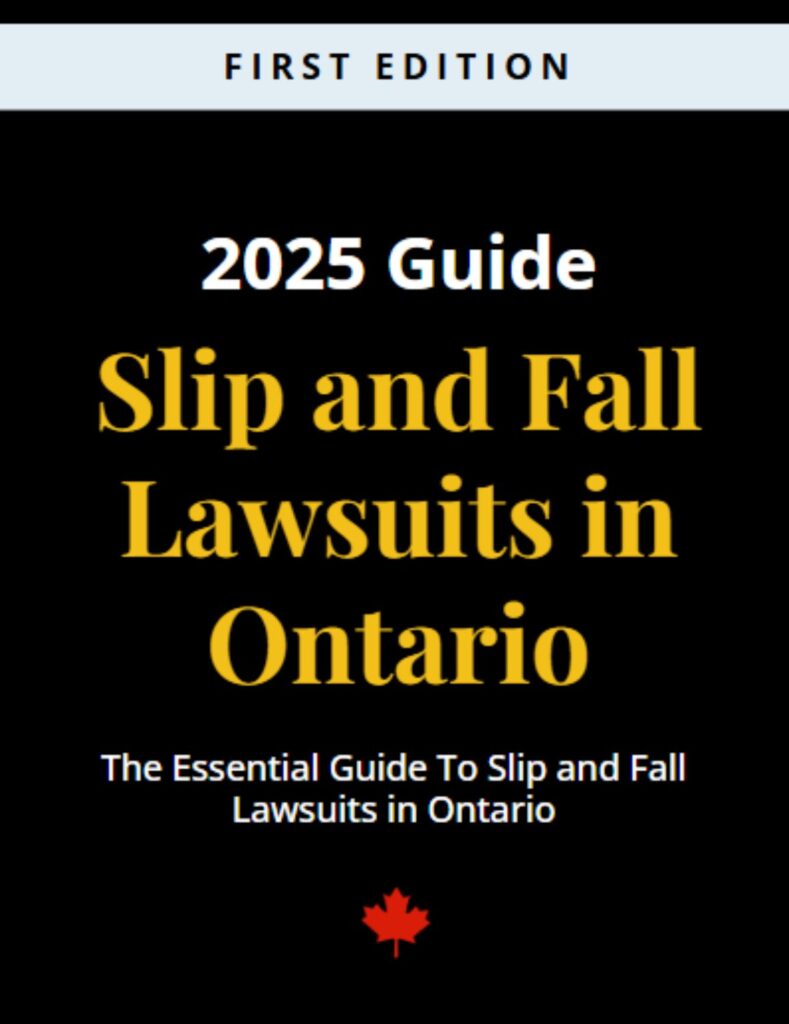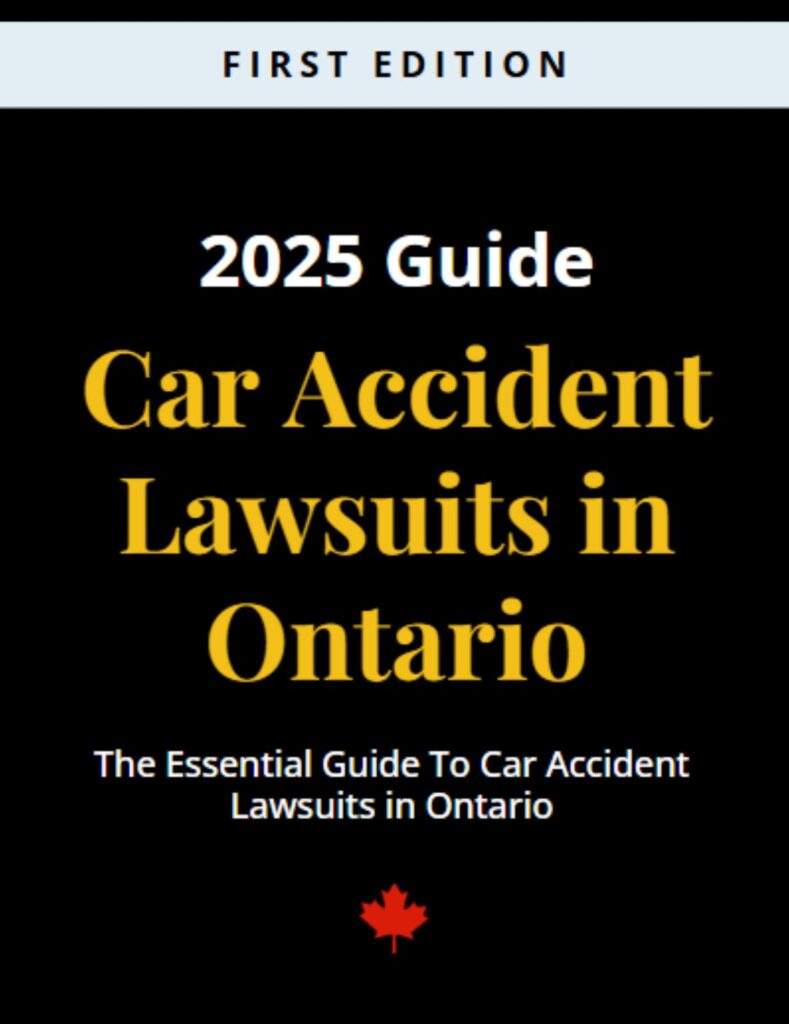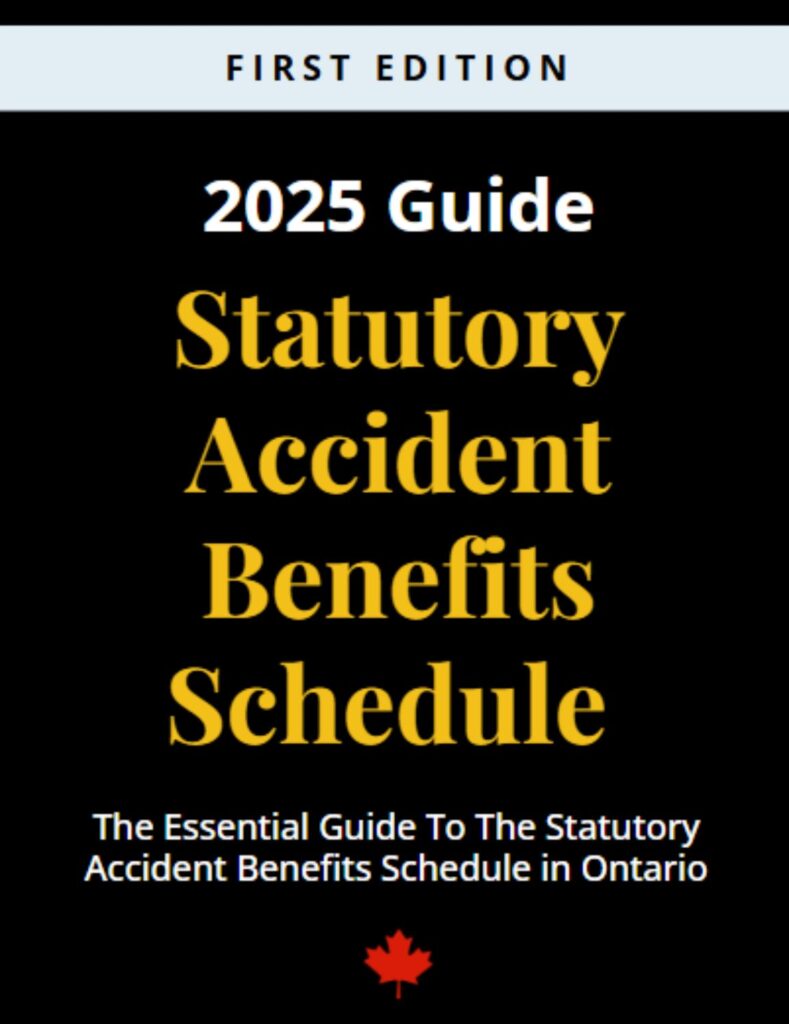Algoma Personal Injury Lawyer
Find out if you have a case today.
Contact our Algoma personal injury lawyers for a free consultation if you have legal questions regarding your personal injury claim.
Table of Contents
Accidents happen every day. A small misstep on an icy walkway, a momentary glance away from the windshield to check a cell phone notification, a brief distraction while operating a motor vehicle, and any number of other seemingly innocent infractions can have wide-ranging, far-reaching impacts on a person’s everyday life. When accidents lead to personal injuries, the people involved in the incident often blame themselves, their own lack of attention, or their lack of caution. However, in many scenarios, injury-causing accidents are the result of someone else’s negligence entirely.
As members of a society, many of us owe one another a duty of care. That means that, in accordance with various provincial legislations, countless individuals are required to abide by specific laws, exercise reasonable caution while engaging in certain activities, and take the safety of others into consideration so that no one sustains unnecessary injuries in otherwise preventable accidents.
For example, anyone who operates a boat on local lakes and waterways is subject to the rules outlined in the Canada Shipping Act. If a boat operator fails to abide by the federal laws governing the safe operation of commercial or recreational vessels, their wrongful conduct could lead to a collision with another boat or a stationary object, causing the people onboard to sustain serious injuries.
When passengers are jettisoned from a boat, they could lose their lives by drowning. And even those who are fortunate enough to survive the accident could sustain severe injuries with lifelong repercussions.
Boating accident survivors who become trapped underwater for a prolonged period of time could sustain anoxic brain injuries. Anoxic brain injuries can have permanent side effects that impact all areas of an injured accident survivor’s life.
The adverse effects of anoxic brain injuries can be physical, cognitive, and behavioural. Accident victims who have sustained anoxic brain injuries often struggle to keep their jobs, maintain social and romantic relationships, and continue living independently.
Symptoms of severe anoxic brain injuries can include:
- Anomia: linguistic difficulties, including inability to find the right word, confusing similar sounding words, failure to understand common words, etc.
- Ataxia: lack of coordination
- Apraxia: inability to perform familiar physical tasks (i.e. brushing teeth, using utensils, etc.)
- Quadriparesis: weakness of arms and legs
- Memory loss
- Difficulty processing visual information
- Mood swings
- Difficulty reasoning, making decisions, synthesizing information
- And more
Being involved in an accident on the water can also lead to a host of other physical injuries, especially if the collision occurred at a high speed. The force of the collision could throw a boat’s passengers to the deck or against the vessel’s side, resulting in serious traumatic injuries. These might include:
- Broken or fractured bones
- Cuts and lacerations
- Strains and sprains
- Musculoskeletal injuries
- Facial and dental injuries
- Internal organ damage
- Neck and back injuries
- Spinal cord injuries
- Paralysis
- Concussions
- Traumatic brain injuries
- Amputations
- And more
If the wrongful actions (or inactions) of a boat operator caused an injurious accident to occur, the at-fault party might be considered negligent. Therefore, they might be responsible for providing injured survivors of the boating accident with compensation for damages they have incurred as a result of the injuries they have sustained.
The operators of pleasure crafts are not the only people responsible for behaving with reasonable caution. Many people throughout the province owe a duty of care to the people around them, even if they do not have any sort of pre-existing relationship with them.
For example, anyone who drives a car on the province’s roads is subject to the rules mandated by the Highway Traffic Act. All drivers must exercise caution behind the wheel and obey local traffic laws so as to reduce the risk of injury-causing or fatal accidents. If a driver violates the rules of the road and a collision ensues, they might be considered negligent and, therefore, liable for damages incurred by the accident’s injured victims.
Similarly, the people who own and/or occupy commercial and residential properties are required to abide by the rules mandated by the Occupiers’ Liability Act. That means they have a legal obligation to safeguard their premises against potentially dangerous maintenance hazards so as to protect visitors, customers, employees, and passersby from injury-causing accidents. By failing to take proactive, preventative safety measures, property owners/occupiers essentially shirk the duty of care they owe to others. This negligence can have far-reaching impacts on an injured accident victim’s life. As such, people who sustained compensable injuries on someone else’s premises may be able to recover damages from the negligent property owner/occupier.
Sustaining any number of injuries in any kind of accident can be a harrowing process, fraught with physical pain, psychological trauma, and financial instability. However, by working with our Algoma personal injury lawyers, injured survivors of accidents caused by someone else’s negligence might be able to recover the compensation they deserve. To learn more, call 1-800-JUSTICE and receive a free initial consultation with our Algoma personal injury lawyers.
Seeking Advice From Algoma Personal Injury Lawyers
Our Algoma personal injury lawyers have extensive experience working with victims who have been hurt in a number of different traumatic circumstances, including:
- Car accidents
- Sexual assault
- Sexual abuse
- Pedestrian accidents
- Bicycle accidents
- Motorcycle accidents
- Truck accidents
- Slip and fall accidents
- E-Bike and e-scooter accidents
- Boating accidents
- Snowmobile accidents
- ATV accidents
- And more
In order to best serve the local community, our personal injury lawyers serving Algoma offer all prospective clients a free initial consultation. During this no-obligation, cost-free first meeting, you will have the chance to review the details of your accident with a member of our team, ask questions, and receive personalized legal advice based on the specific details of your case. Our Algoma personal injury lawyers appreciate that no two cases are exactly alike and tailor our legal advice to meet the individual needs of each client we represent.
Additionally, our personal injury lawyers serving Algoma work on a contingency-fee basis. Essentially, if you are eligible to pursue legal action against the at-fault party whose negligence caused you to sustain injuries, we will not ask you for any payment unless our Algoma personal injury lawyers win your case.
To learn if you might be eligible to take legal action and get the compensation you deserve, contact Preszler Injury Lawyers today and schedule your free initial consultation with our personal injury lawyers serving Algoma.
Do you live in Algoma? Here’s how we can help:
Proudly Canadian
Award Winning Personal Injury Law Firm
We are proud to be one of Canada’s oldest and long-standing personal injury law firms. Since 1959, we have been providing exceptional legal services and have established ourselves as leading personal injury lawyers in the Canadian legal community. It’s not just the awards that recognize our achievements, but also the wins we’ve achieved for thousands of Canadians with their personal injury claims.
More personal injury Topics
Here’s more information on personal injury related topics that we think you might find helpful.

personal injury
|
November 13, 2025
Pain and Suffering Damages Calculator for Ontario (2025): Thresholds and Deductible Explained
In Ontario, pain and suffering damages (also known as non-pecuniary or general damages) compensate for human losses that don’t appear on a tangible bill. For…

personal injury
|
January 23, 2024
Injured as a Worker in Ontario? A WSIB Claim Isn’t Necessarily Your Best— Or Only— Option
In Ontario, the compensation of workers who sustain injuries or illnesses in the course of their employment is governed by the Workplace Safety and Insurance…

personal injury
|
December 7, 2023
Does a Child Have the Right to Sue for Personal Injury?
As much as parents and guardians do everything they can to keep children safe and protected from dangerous situations, there are occasions when a child…
More personal injury Video Resources
We also have some videos on the topic of personal injury claims
personal injury FAQs
Here are some commonly asked questions for personal injury claims
How long does it typically take to resolve a personal injury case in Ontario?
Timelines vary. Some cases resolve in months, while others take years if litigation becomes necessary. Factors include injury severity, available evidence, and how insurers respond.
Can I still make a claim if the accident was partially my fault?
Yes. Ontario’s contributory negligence rules allow claims even if you share some fault. Your compensation may be reduced based on your percentage of responsibility.
What should I do immediately after a personal injury accident?
Seek medical care, report the incident, collect witness details if possible, and keep copies of medical and expense records. Contacting a lawyer early helps protect your rights.
How much does it cost to hire a personal injury lawyer in Mississauga?
We work on a contingency basis. You don’t pay upfront, and fees are collected only after your case concludes.
Do I need a lawyer if the insurance company is handling my claim?
Insurance companies don’t always act in your best interest. Our lawyers ensure your rights are protected and that all available damages are pursued.
Do I need a lawyer if the insurance company has made an offer?
Insurance companies often make low offers hoping victims will accept quickly. A lawyer reviews your case to determine whether the offer reflects your losses.
What is a contingency fee agreement?
A contingency fee agreement means you do not pay any legal fees upfront. Your lawyer covers the costs of building and pursuing your case. We only collect a pre-agreed percentage of the final amount if we successfully recover compensation for you through a settlement or court award. If we do not win your case, you owe us nothing for our time.
Why is it important to document my injuries and recovery process?
Keeping a simple journal helps track how your injuries affect your daily life. Note your pain levels, medical appointments, missed work or social activities, and any challenges you face with personal care or household chores. This documentation provides powerful evidence to support your claim for pain, suffering, and loss of enjoyment of life.
INJURED IN AN ACCIDENT IN ALGOMA?
Call Our Personal Injury Lawyers Now
We’re here to help 24/7
Find out if you have a personal injury case and what your next steps should be, at no cost to you.






